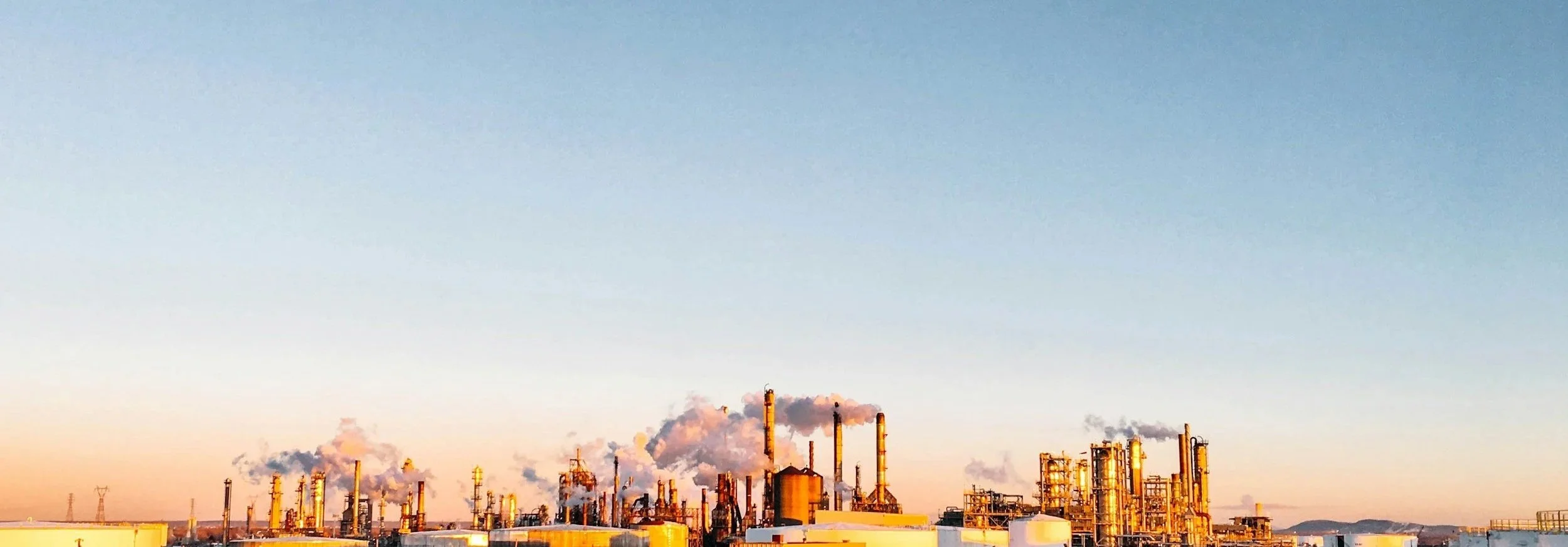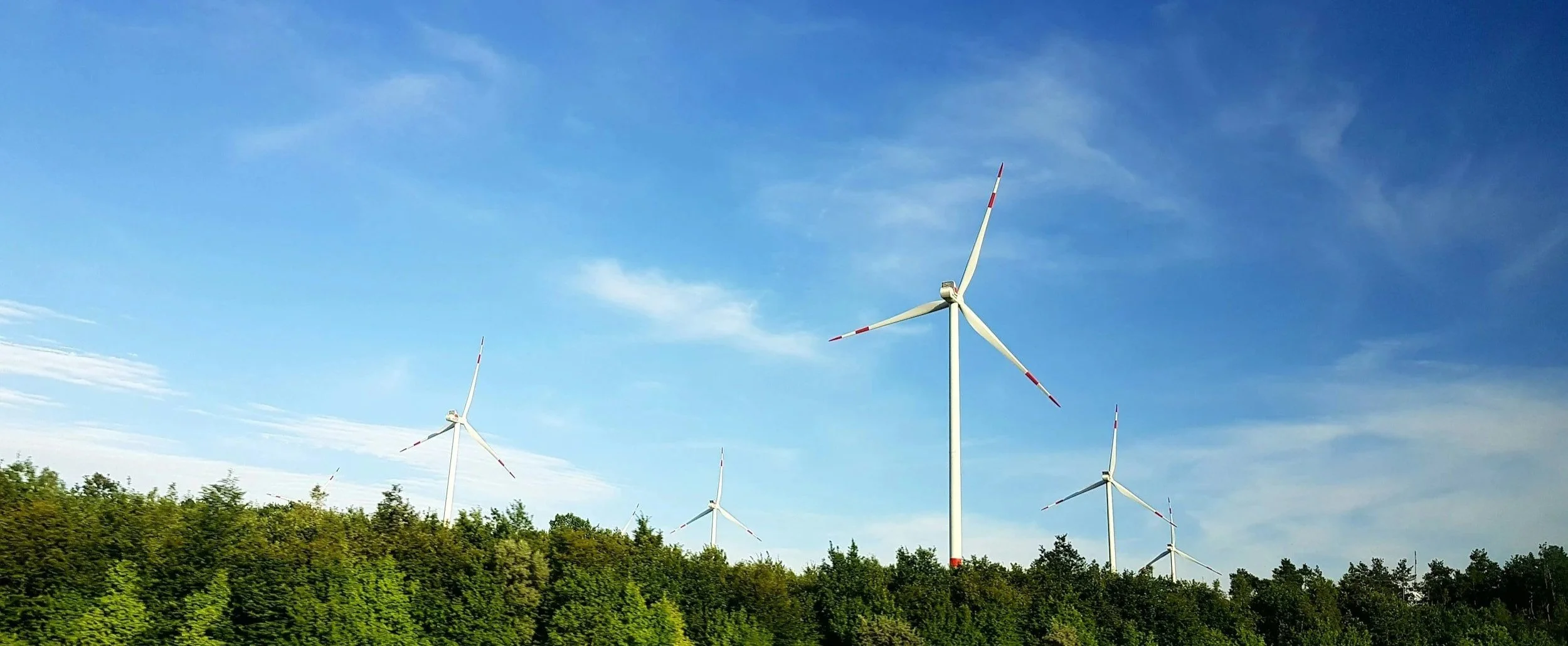Leaders in Global Energy: A Conversation with Karina Luchinkina
Karina Luchinkina began her career at PwC, transitioning from graduate recruitment into HR consulting and performance improvement. Over the years, she has advised companies in more than 30 countries on global expansion, governance, and IPO readiness on international stock exchanges. Karina has also held board positions in major energy infrastructure, including Ukraine’s main gas pipeline - one of the most geostrategically significant energy assets. She was also a senior executive at AI and ESG investment pioneer Arabesque and is an active member of InfraNEDs, a network supporting women non-executive directors in the energy and infrastructure sectors.
With both of her parents working as space engineers, Karina grew up in an environment where complex technical subjects were the norm, not something to be feared. That early exposure helped shape her confidence and curiosity in tackling highly technical and strategic challenges throughout her career.
In this interview, Karina discusses the future of the energy sector, the importance of authenticity in leadership, and how innovation, particularly in AI, digitalisation, and clean technologies, is reshaping legacy infrastructure.
What trends do you predict will shape the energy sector in 2025?
Energy demand continues to rise, driven particularly by the growth of AI workloads and data centres. Electrification of transport and industry is accelerating, placing increasing pressure on legacy systems. While renewables are scaling rapidly, they are still not expanding quickly enough to meet rising demand. Nuclear is receiving renewed attention, especially large scale reactors in Asia, though it remains costly and politically complex. Small modular reactors (SMRs) and fusion hold promise, but are still at early stages.
We’ll also see intensifying pressure on the hydrocarbon sector to decarbonise. Technologies such as carbon capture, AI powered predictive maintenance, and real time emissions tracking will be pivotal. The future lies in integrating legacy infrastructure with intelligent, low emissions solutions.
Are there any specific innovations you believe will disrupt the industry?
Absolutely. The convergence of clean tech and digitalisation is transforming how we operate. Solar PV and wind installations hit record highs again in 2024. Tools that improve predictive maintenance, detect methane leaks, optimise workforce planning, and digitise operational controls are becoming standard. AI-enabled demand forecasting and grid balancing tools are increasingly important.
The rapid growth in EVs is also reshaping electricity demand curves, and battery storage and smart grid technologies are becoming essential. There’s a significant shift from hydrocarbons to electrification, alongside innovations that reduce the carbon intensity of fossil fuel reliant industries.
Which regions do you anticipate as key growth areas in the near future?
Emerging markets, particularly in Asia and Africa, are driving more than 80% of global energy demand growth. India, for example, is now the single largest contributor to global oil demand growth. Parts of Central and Eastern Europe are also set for major investment, including post-war recovery in Ukraine.
Parts of Europe need investment in distributed energy systems and improved grid interconnections to avoid blackouts. Across these regions, the mix will include both conventional energy and rapid renewables deployment. SMRs and improved nuclear grid integration will likely become more relevant, especially in energy importing countries. We’ll also see continued growth in other renewables, contributing significantly to the energy security of these countries.
What progress have you seen in ED&I in the energy sector?
There has been progress. When I started, it was rare to see female leaders, but that’s changing. Even in traditionally conservative male dominated industries, women are now taking leadership roles. Visibility matters. I saw it first hand when I joined the board in Ukraine - it sent a powerful signal. That said, progress has been relatively slow, and in many regions, women remain a minority on company boards.
I also see this with my daughter, who’s now considering engineering. Without visible role models, young women are far less likely to pursue these paths. My daughter was inspired after her participation in the outreach programme ‘Girls on Track’, which showcases the careers of senior women in traditionally male dominated automotive sector and ignited early interest and made a lasting impact.
Also, in our InfraNEDs network members mentor fellow members, sharing insights on board effectiveness, stakeholder engagement, industry trends and navigating complex public-private interfaces. This peer based mentoring has become a valuable part of building collective capability and resilience across the non-executive community, particularly as the energy sector undergoes rapid transformation.
What has been the most challenging project you’ve worked on in your career?
My role on the supervisory board of the Main Gas Pipeline of Ukraine stands out. This was the transit pipeline from Russia to the EU - a project of immense political, economic, and technical complexity. The company employed 11,000 people, operated 33,000 km of pipeline, and generated close to $2 billion in revenue. I joined the inaugural board alongside a former minister and senior executives of major European pipeline operators. We had to establish governance and operational frameworks from the ground up.
I was the only female member and came from a consulting background, initially unsure of what I could add. But that experience gave me a broad skill set: preparing businesses for M&A, establishing boards and committees, building strong control and assurance processes and functions, and implementing performance based remuneration.
It was intense, public, and high stakes, but deeply rewarding. The key lesson? Don’t let fear hold you back. I’ve often stepped into roles without ticking every box and succeeded by taking the leap. That breadth of HR, capital markets, deals, governance, has proven invaluable in the boardroom.
What quality do today’s leaders need most?
Authenticity stands out. Be yourself and lead by example. Cultural sensitivity is also vital - you can’t apply the same leadership style in the Netherlands as you would in the Middle East.
Leadership in tech and AI sectors tends to be meritocratic and egalitarian. It’s less about seniority and more about outcomes. One underused skill, especially among women, is speaking about your achievements without waiting to be noticed.
Also, relationships matter. Stay connected with people you’ve worked with; those networks often come full circle some years later.
What advice would you give to aspiring leaders, especially women?
Don’t shy away from technical subjects. Develop a broad understanding of how the business works - from finance and operations to HR and marketing. In sectors like energy, knowledge of geopolitics can be just as important as technical know-how.
Form friendships across departments and levels. Help others when you can - they’ll remember. Finally, embrace roles that stretch you beyond your comfort zone. You’ll grow more than you ever expected.
Karina’s story highlights the impact of bold career moves, broad based expertise, and values driven leadership. She’s worked across borders, industries, and boardrooms, all while championing diversity and driving innovation. Her insights are a timely reminder of what it takes to lead through disruption and help shape the future of global energy.
Pearse Professionals is proud to be partnering with a number of senior female NEDs, Chairs, and Advisors within the infrastructure and renewable energy industry
If you’re looking to appoint a senior advisor within your organisation, or are interested in exploring opportunities within the space, we’d be happy to arrange a more in depth conversation about how our network could support your infrastructure portfolio, alongside our broader advisory capabilities.
For more information, head over to our Board & Advisory page, or get in touch with the Pearse Professionals team: info@pearseprofessionals.com




